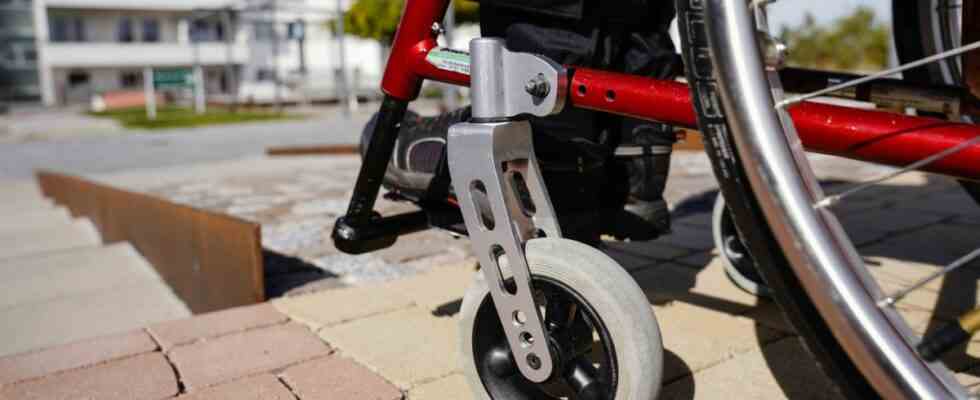Go shopping, meet friends, visit the doctor or just sit down in the nearest café – what is natural for people without mobility impairments often poses great challenges for wheelchair users, the deaf and seniors with walkers or walking aids. Accessibility, although now a legal right, is far from being implemented everywhere in Munich: There are steps, but no elevator or ramp. Or there is a lack of accessible toilets. So far, the 13 million people in Germany with disabilities have only been able to do many everyday walks with the help of others. The aim of the association “Mobile and safe in everyday life” is to minimize this dependency.
The members of the association therefore recently published a free district map of Au-Haidhausen that looks different from classic city maps. Large font in a handy format, greatly simplified representation, clear colors – the new map is similar to the already known senior citizens’ district maps. In addition, this new “social area map” is covered with colorful stars – the hundred top contact points in the district, which from the club’s point of view can be reached by most people with walking disabilities. Grocery stores, shops, post offices and banks are among them, but also pharmacies, medical centres, drugstores and specialist medical shops. Restaurants and cafés, hairdressing salons, hotels, neighborhood and senior citizens’ clubs as well as churches and cultural institutions are also marked.
The map shows where there are elevators, where there is a ramp or stairlift. It indicates disabled parking spaces, barrier-free toilets, traffic lights for the blind and seating. Even inclines and declines can be read from the plan. “Something similar hasn’t existed before,” says Thorsten Wieland. The 58-year-old is a graduate engineer for cartography. He and his colleagues developed the social space map after many discussions with those affected, senior citizens’ advisory councils and specialist bodies such as the senior citizens’ and disabled people’s advisory councils. “It was a long process.”
One where club members and volunteers, among other things, went all over the neighborhood to get information. The card for Au-Haidhausen is available in the old people’s and service center at Wolfgangstraße 18. You can also order it from the association itself by telephone on 089/997 429 881 or by e-mail to [email protected] will. And it can be downloaded from mobil-und-sicher.de.
The plan is now to expand the project and also offer the small-scale map for other parts of the city. Schwabing-West has already been decided: In mid-January, the district committee approved the financing of the social space card in the amount of 5800 euros with a majority. In an edition of 1000 pieces. CSU and FDP had previously criticized that half of the costs are geodata that the city already has. Incidentally, it is the municipality’s job to pay for such a card, not a matter for a local committee.
The association, Wieland remarks, initially “communicated the idea with the social space card in all directions in order to get funding. But then it was said, do it first”. It is unclear when the district map with the barrier-free information for western Schwabing will be available. “That depends on the content,” explains Wieland. The production itself can be completed in four to six weeks. In any case, the people from Schwabing just want to “look at it and check whether something important has been forgotten”.

